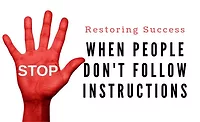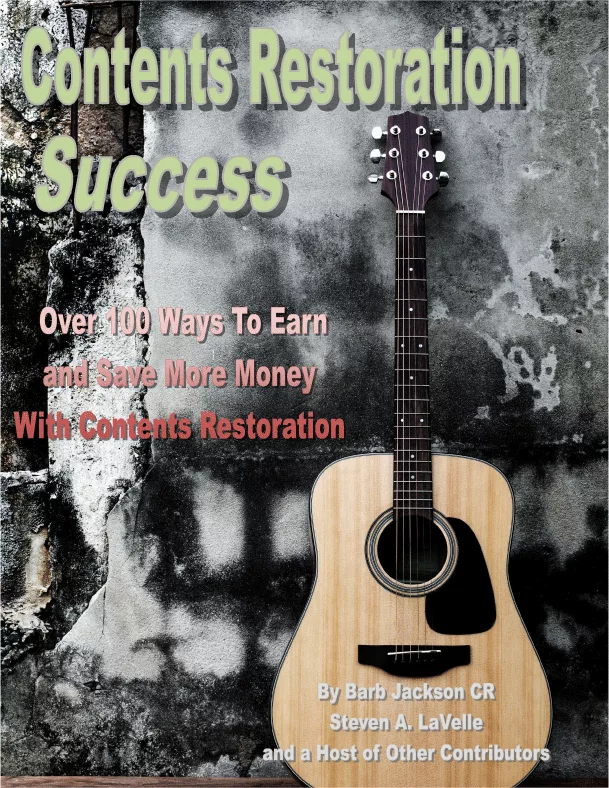Restoring Success: Bad Things Happen When...
The scariest things to consider when running a restoration company.

It is against my principles to take such a negative approach on a topic.However, in the spirit of the season, I will tell you about the scariest of things to consider in operating your restoration company.
Like many of us who have quirks and taglines, I am known to abuse some of the following lines:
- “The moral of the story is”: I use this to emphasize the takeaway of a story.
- “Not to be a jerk”: This is not purposeful nor a recommended phrase; but, it is well known by those I work closely with that after, “not to be a jerk” will be constructive criticism. (I have actually tried to cease the use of this opener; admittedly, I am struggling. I believe that I sound like a jerk when I say, “Not to be a jerk”)
- “Bad things happen when”: Good training should include explaining to those being trained, “WHY” we do what we do. Within the restoration, remediation, and cleaning industries, there is an almost endless need for training and review. During training, retraining, and coaching,
I often give an example of what could happen if not done a certain way. For added emphasis, to make the point that there are lessons that have been learned that need not be repeated, I will add, “BAD THINGS HAPPEN when…”
The following is a list of things that should SCARE you in your restoration company. In no particular order, BAD THINGS HAPPEN when…
-
You are not honest: If you messed up, broke something, did not meet your customer’s expectation or did not honor a commitment to a co-worker, admit your error, apologize, and move on. By backtracking or not being upfront about the what caused the problem, you only makes thing worse.
-
Contents are not labeled properly: Contents restoration is a detail-oriented operation and there is no room for labeling issues. Whether digital or handwritten, any content in your possession must be properly labeled with all pertinent information. Labels should be properly affixed to the content.
-
You don’t know where the money is: At any given point, you should know exactly where the money on all of your jobs is or where it is coming from. Collections in our industry is complicated. The money on just one of your jobs could be at: the insurance company, property owner, bank escrow, and municipal escrow. It is scary when you lose track of the money and how to get it. Stay on top of it.
-
You don’t use a to-do list: In today’s world, there are many variations on the traditional to-do list which are acceptable. The world is fast-paced. In honoring commitments to those we serve, work with, and who rely on us, there is no excuse for not employing something more than your memory.
-
You don’t document: The documentation of meaningful contact, pre-existing conditions, contracts, and pictures related to the work we do are imperative. Best practices and procedures should incorporate documentation expectations of the operation.
-
You don’t read instructions and follow them: Whether it is interoffice instructions, products, equipment, work orders, when you don’t read instructions and follow them, really scary things could result.
-
You don’t address a bad attitude: Bad attitudes will do nothing but fester and spread until you have a full contamination.
-
You practice tacit approval: Tacit approval by definition is: Approval understood or implied without being stated. When you don’t address things that are not being done properly, your silence is approving the action, practice, and/or technique.
-
You stop learning: When you and/or your organization stop learning and growing, you are risking being antiquated and obsolete. There are so many ways to learn and grow in our industry. One example is to read R&R, which provides a constant stream of knowledge and information for our industry.
- You don’t work safely and ground the generator: Of course, working safely all the time in all we do should be top priority. Short cuts, while sometimes well intentioned, often do not turn out well. Grounding a portable generator is a frequently overlooked safety practice because of a lack of awareness of the electrical hazard. Typically, we work with grounded electrical sources; therefore, when we are using a portable generator, the need to ground it can be easily overlooked.
If any of these bad things are happening in your organization, tackle them head on and put things on the right track.
Share your scary thing in the comments section below and prevent a bad thing from happening to someone else!
Looking for a reprint of this article?
From high-res PDFs to custom plaques, order your copy today!







